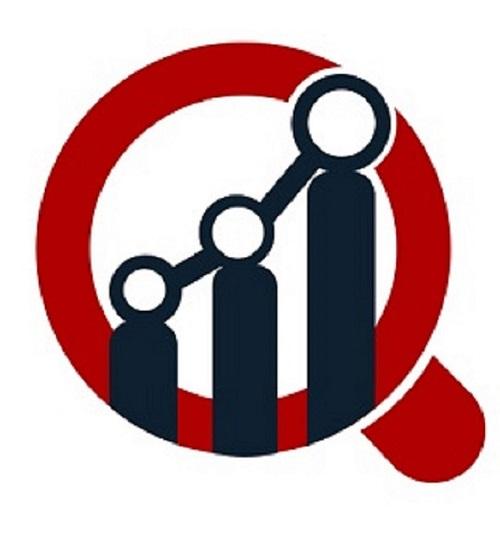Originally Published on: Quantzig|Predictive Analytics in Healthcare: Benefits and Challenges
The healthcare industry is undergoing a significant transformation, shifting from a volume-based business model to one prioritizing value. As healthcare institutions grapple with the complexities of delivering value-based care and optimal patient outcomes amid a data deluge, predictive analytics in healthcare emerges as a pivotal solution. While it empowers organizations to treat patients effectively and enhance service quality, there are accompanying challenges in its implementation.
Explore how predictive analytics solutions can elevate clinical trials and ensure accurate interpretation of patient data by requesting a free proposal.
Benefits of Healthcare Predictive Analytics
1. Precision in Diagnoses: Predictive analytics empowers physicians with algorithms for more precise diagnoses. Real-time insights driven by predictive modeling and machine learning enhance prediction accuracy, leading to improved patient outcomes. The technology analyzes extensive datasets, identifying patterns in patient journeys for early diagnoses and predicting negative outcomes. It also facilitates real-time monitoring of diagnosed patients, enabling timely interventions to prevent complications or long-term damage.
2. Preventive Medicine and Public Health Support: Predictive analytics facilitates early intervention, particularly in preventing or mitigating chronic diseases. Within genomics, predictive modeling assists primary care physicians in identifying at-risk patients, enabling proactive lifestyle changes. The technology also aids in creating profiles for patients at risk of substance abuse, guiding providers in anticipating the impact of prescription decisions on these patients.
Struggling to realize the clinical and financial rewards of predictive analytics? Our experts can help. Connect with us today.
3. Cost Predictions for Insurance Products: Healthcare organizations can predict future medical costs by inputting workforce characteristics into predictive analytic algorithms. This data-driven approach aids in developing health plans, synchronizing databases, and aligning insurance offerings with specific workforce needs. The predictive analytics framework ensures informed decision-making for employers and hospitals regarding insurance product costs.
4. Revolutionized Patient Monitoring: Predictive analytics transforms patient monitoring by providing real-time insights into diagnosed individuals. Continuous monitoring enables healthcare providers to accurately track disease progression. Predictive algorithms generate early alerts, facilitating prompt interventions. This proactive approach prevents potential complications, minimizing the risk of long-term damage and optimizing patient outcomes.
5. Informed Decision-Making for Insurance Products: Predictive analytics serves as a strategic tool, enabling informed decision-making about insurance product costs. By leveraging predictive algorithms, organizations accurately forecast future medical costs, aligning insurance offerings with workforce needs. This data-driven decision-making ensures financial planning aligns with healthcare benefits.
Incorporating advanced healthcare predictive analytics enhances patient care, organizational efficiency, and financial planning.
Our advanced analytics solutions assist healthcare organizations in improving patient outcomes and reducing the cost of care. Interested? Request a FREE demo.
Challenges in the Implementation of Predictive Analytics in Healthcare
1. Comprehensive Patient Profile Development: Creating a comprehensive patient profile is challenging, especially when patients move between providers, health systems, or geographical regions. The difficulty lies in mapping the profiles of such patients, making the implementation of predictive analytics solutions challenging.
Explore how our healthcare predictive analytics dashboards can identify at-risk patients and achieve desired outcomes by requesting more information.
2. Clinical Application Challenges: Healthcare professionals encounter challenges in applying predictive analytics, especially when dealing with diverse data elements beyond classical clinical data. The interpretation of new data requires a framework that physicians can understand and recognize as credible, demanding detailed rationale along with predictions.
3. Data Aggregation Challenges: Patient data is often scattered across various sources, requiring meticulous planning for aggregation. Organizations must agree on data types, formats, and governance processes to ensure data quality and accuracy for effective predictive analytics implementation.
4. Ethical and Privacy Concerns: The implementation of predictive analytics raises ethical and privacy concerns. Ensuring patient data security, obtaining informed consent, and addressing potential biases in algorithms are crucial considerations for healthcare organizations.
Examples of Predictive Analytics in Healthcare:
- Implementing Healthcare Predictive Analytics for Chronic Disease Management
- Enhancing Emergency Room Efficiency with Predictive Modeling
- Optimizing Medication Adherence through Predictive Analytics
In conclusion, while healthcare predictive analytics holds immense promise in transforming healthcare, overcoming its associated challenges requires strategic planning, ethical considerations, and continuous advancements in technology and data governance. Healthcare professionals must navigate this dynamic landscape judiciously to harness the full potential of predictive analytics in improving patient outcomes and operational efficiency.


